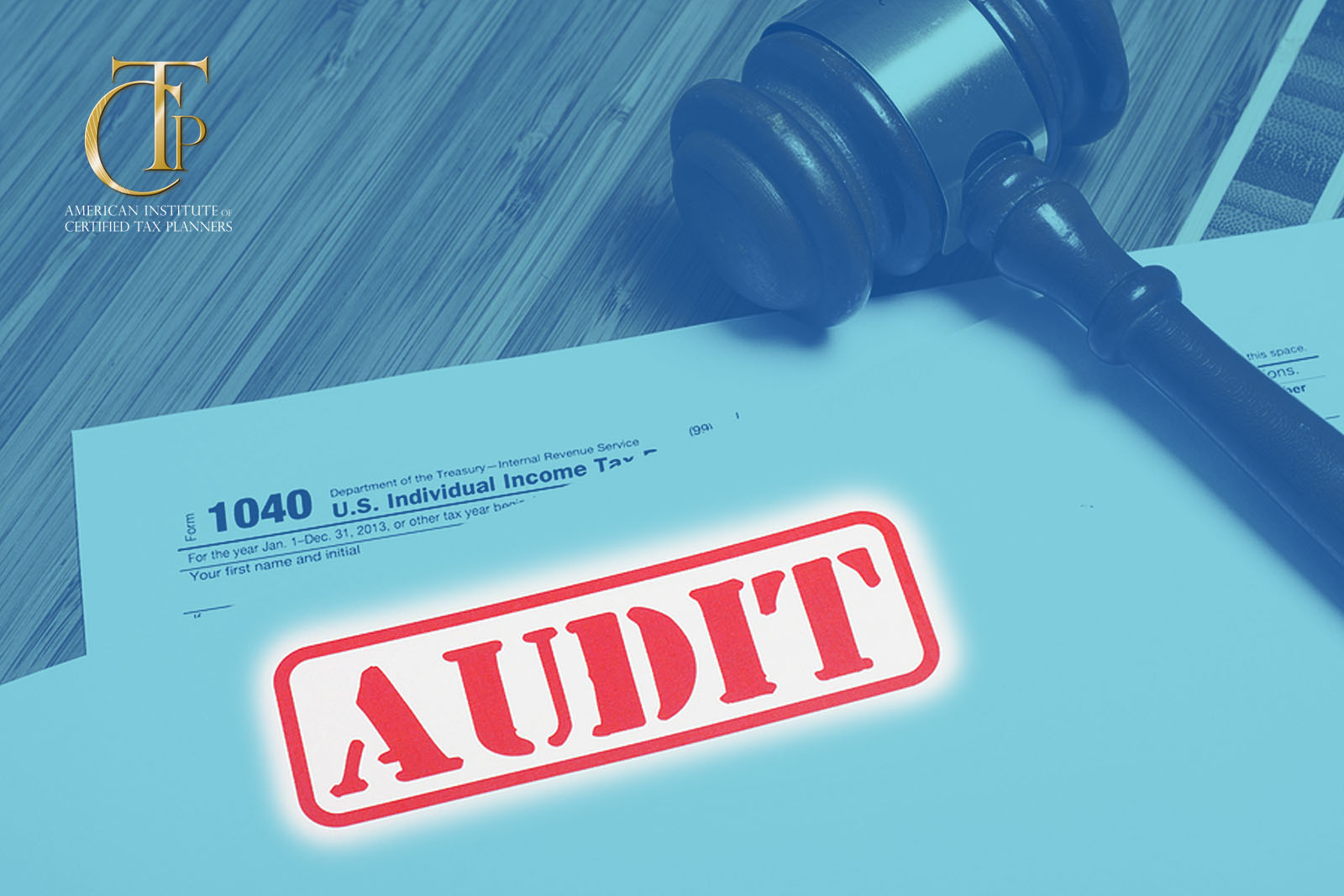Just the mention of the word “audit” can strike fear into a taxpayer’s heart—but with enough preparation, an audit does not have to be a reason for anxiety. Each year, a number of audits are randomly chosen by the IRS, so the possibility of being audited is unavoidable even if your tax return has been filled out perfectly. So how can taxpayers prepare for this eventuality? The saying “the best defense is a good offense” comes into play here. By proactively gathering supporting documentation for each element on your tax return, you will already have the backup you need to make it through an audit unscathed if one comes your way.
Tip #1: Establish Evidence
Every tax deduction and credit that you claim on your return should be backed up by supporting documentation. Think of this as if you are actually preparing to go to court and defend your case from a legal point of view. What would you want to have on hand as proof that you are entitled to that deduction or that credit? For example, say you are deducting your mortgage interest on your Schedule A. You are taking an itemized deduction, which is a legal tax position. You are saying that you are legally responsible for that mortgage and that the law therefore allows you to deduct the related interest. So to support your claim, you might collect:
- your mortgage agreement
- proof that you live in that residence
- statements that confirm what you paid on the principal versus interest, such as bank statements, canceled checks, and payment confirmation receipts
All of these documents act as evidence that you are entitled to this deduction and will prove crucial in the event of an audit.
So how do you know what type of documentation will satisfy an IRS auditor? First, note that both physical and digital documents are permissible. What is more important is the level of detail provided in a document. For instance, if you are looking to establish debt, your documentation needs to state:
- the maturity date (when the debt actually becomes due)
- the amount due
- the amount of interest
- the terms of the debt
- the payment due date
- how payments are calculated
Any agreements related to taking on this debt need to be signed to show that you are responsible. You will also want documents stating whether these payments have been made. By looking at IRS guidelines and court case law, you can discover what details need to be captured to provide sufficient evidence in an audit.
Tip #2: Know the Different Types of Documentation
Much of the documentation process will take place long before you file your tax return. In many cases, you will need the help of third parties and official entities to provide the documents you need. This can include:
Legal. You may need legal implementation such as having a lawyer execute a contract or a trust. Taxpayers may be tempted to use boilerplate agreements found online to avoid paying for an attorney, but in many cases, this “shortcut” can end up costing you in the end. In certain states and jurisdictions, using a boilerplate instead of the help of a lawyer is actually considered illegal practice of law. You can find this information through the state bar association.
Banking. You will want to keep all your banking records on hand, from standard bank statements to documentation of transactions, wires, or any other type of exchange. If your documentation is related to real property, this might involve deeds, as well as wire transfers and records detailing your use of an escrow company.
Specialists. In certain cases, you may need the help of a specialist to provide their expertise and create valid documentation. You may need the help of an actuary to do specific calculations. Say, for instance, you are setting up a charitable remainder annui-trust (CRAT). Though this provides the benefit of an immediate tax deduction, the CRAT is also under more intense scrutiny due to disagreements between the government and the taxpayer about what is an acceptable valuation for the assets placed in a CRAT. To ensure you are prepared for an audit, you may need to have a valuation expert document and establish the legal valuation for your chosen tax strategy.
What about court testimony? Since that is a legal setting, could a recording or evidence in a court case be used as documentation in a tax audit? Yes—with several caveats. The testimony must meet the rules of evidence, the judge must allow it to come in, and the judge is entitled to weigh the value of that evidence. However, taxpayers should note that it is very common for testimony evidence from the taxpayer to be thrown out in court due to the taxpayer’s bias. Since the taxpayer obviously has an interest in winning their case, the judge automatically has to discount the value of that testimony. Because of that, you will want to find other sources of supporting documentation that support the tax strategies you are using.
Tip #3: Review Relevant Audit Technique Guides
Lastly, the IRS publishes audit technique guides for many specific types of businesses. Referencing these guides can point you to the types of documentation you will need to address the “red flags” auditors look for. For example, the IRS is currently using its “retail industry audit technique guide” for many online businesses. In this particular sector, a tax examiner will be instructed to look at certain areas where there is a lot of tax fraud, such as assessing whether or not the business owner has understated their income. The guide even discusses how payment processors and internet gateways work so that the auditor knows to examine things like their gateway’s monthly reporting or their merchant card processor reporting. They can contrast those two documents and look for discrepancies. Taxpayers can review these guides to gain clarity on which types of records to maintain.
Say that instead you are a real estate developer in the construction industry. Your auditor would reference a different audit technique guide. This guide spells out the various methods of accounting, what the rules are, and when each can be used. For instance, large businesses that have at least $25 million in average gross receipts are required to use the accrual method of accounting. The guide even goes into detail about how you calculate revenue recognition and makes suggestions as to what types of evidence the auditor will want to examine to see if the taxpayer has properly reported all of their income.
Summary
Remember, when it comes to IRS audits, the best defense is a good offense. This means that the documentation process should be completed long before you are selected for an exam or receive a notice from the IRS. If you do this well, an audit should simply be a matter of process and providing the proof you have already collected.
To help you navigate the process of tax documentation and ensure your records will meet IRS audit standards, connect with a Certified Tax Planner today.





